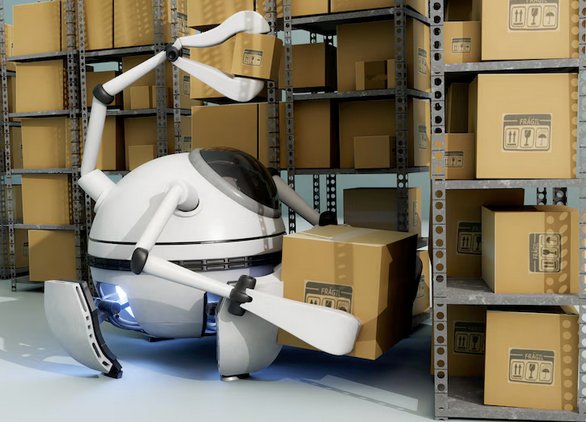In the next 20 years, new AI technology is predicted to boost the global economy by $1.3 trillion by improving the efficiency of the supply chain. The projected increase in global spending in the sector grew from $1.67 billion in 2018 to $12.44 billion in 2024.
See how AI, intelligent technology, is already taking over businesses in a short time. Two of the reasons for the shift are globalization and disruptions in the supply chain. Hence, many companies are now adopting AI. If you want your business to reach its potential and gain an advantage over your competitors, then AI is the key, and one of its primary applications in supply chains is AI Inventory Management.
Case Study: Coca-Cola’s Intelligent Inventory
In 2013, the Coca-Cola Founders Platform organized its startup incubator to challenge emerging entrepreneurs and help them nurture and expand their ideas. Two participants in Coca-Cola’s 2014 program, Franki Chamaki and Jason Hosking, integrated Coca-Cola’s supply chain data from 60 vending machines into their smart self-learning AI algorithm.

The AI algorithm examined each vending machine’s transaction patterns and generated recommendations to boost its sales. Coca-Cola followed the AI predictions and suggestions to stock products in strategic locations. Because of this, the company enjoyed a 15% increase in revenue. In addition, the need for restocking decreased by 18% because the AI recommended an accurate amount of inventory for each vending machine.
As the biggest non-alcoholic beverage producer in the world, Coca-Cola continues to thrive and minimize its losses. Even with disruptions, the company maintained a robust supply chain, and it is openly proud that this is due to the AI technology it implemented.
Five Ways AI Inventory Management Can Help Your Business
Due to the development of data-driven manufacturing and distribution facilities, AI inventory management software has significantly enhanced processes. AI is revolutionary compared to conventional human approaches because it comprehends real-time inventory control dynamics that impact inventory stock levels. AI is capable of scenario prediction, solution recommendation, and even action plan implementation.
Computers constantly work with vast volumes of data in transport vehicles, cash registers, cargo ships, and warehouses.
When AI is used in inventory management, it doesn’t mean only robots do all the work. AI also comprises devices that learn. These devices have software to analyze complex circumstances using logical reasoning and advanced analysis methods. They interact with other computer systems, use clever algorithms, assess situations, and create solutions. They plan, choose a course of action, and execute it.

1. Hassle-free Demand Forecasting
AI inventory management systems can identify demand trends. They can use this information to estimate demand more precisely and optimize warehouse replenishment schedules.
Real-time data-based AI inventory management offers improved and immediate forecasting. Internal and external sources can be used to gather this information. Demographics, the weather, online comments, reviews, and social media are included.
Businesses adopting AI in inventory management should outperform those using manual processes and human data analysts by using external data and machine learning algorithms.
Reports say firms can decrease supply chain errors by 30 to 40% when AI supports demand forecasting. Businesses will always need to deal with rapidly changing consumer demand. By avoiding inaccurate stock counts and having timely forecasting with AI, merchants can see a decrease in missed sales.
2. Automatic Product Procurement
Every manufacturing company needs a complex and effective procurement procedure. However, the sheer volume of required paperwork and vendor communication overwhelms any human employee. Dealing with too many things can result in errors and inefficiency.
Artificial intelligence can automate procedures such as getting the best quotations and moving items through the supply chain. A recent McKinsey analysis said that businesses that employ AI in their procurement process claimed a 35% to 65% improvement in inventory and service levels. AI even helped reduce logistical costs by 15%.
3. Improved Productivity Through Algorithms
Artificial intelligence is quickly becoming a crucial component of everyday business operations. AI algorithms, for instance, can manage and supervise labor, reducing the need for human employees to perform menial, repetitive activities. As a result, productivity increases, and resources are used more effectively. With less time spent on time-consuming tasks, lead times, quantities, and operational inefficiencies are better tracked.
4. Better Safety Stock Management
Businesses in the modern market must dynamically adjust their stock levels to leverage and respond to incoming demand. Managers will want sophisticated systems that can balance fulfillment costs against service demands. Data from these systems can improve customer experiences, boost return on investment, and promote repeat purchase behavior. Doing so helps achieve profitable results across all your fulfillment channels.
AI in safety stock management can also help prevent inventory problems, including overselling and over-purchasing inventory. Accurate stocks can prevent promising customers things that cannot be fulfilled. AI can also provide information you need to avoid overstocking on “unpopular” commodities.
5. Lower Storage and Shipping Costs
Poor inventory management can cost businesses more than $82 billion in lost revenue annually. However, by utilizing AI tools to enhance inventory management, businesses may significantly reduce operational expenses and boost cash flow.
AI inventory management solutions can assist in prioritizing crucial procedures to clear bottlenecks and satisfy constantly shifting consumer requests. It can even reduce expensive hazards. As a result, there will be a significant decrease in costly rental storage expenses, disgruntled consumers due to inventory shortages, and unsold goods. AI can also help you expand your product line and inventory with little to no additional cost.

Top Features of AI Inventory Management
Artificial intelligence can enhance business processes at every stage. For example, by incorporating AI into procedures like item-level tagging in inventory management, inventory accuracy can be improved.
AI and other automated data science tools can only partially replace the strategic insight and in-depth understanding that decision-makers have. However, these technologies will strengthen their resolve to move forward with new initiatives in the future. In other words, AI will become more prominent in the future. However, each company must decide where it fits in their processes.
1. Data Mining and Processing
AI can examine client data and turn it into insightful knowledge that might help a company react to particular trends. AI systems can advise a business to overstock or understock specific products. These decisions could increase sales and lower the danger of dead stock. The AI assesses many characteristics, such as trending topics, global events, or other things that could increase demand for a specific product.
2. Controlling Warehouse Robots
More warehouses are incorporating automated robots into their day-to-day operations. AI makes the integration and operation of these machines simple. They can be programmed to take efficient routes while automatically locating items for shipping out.
AI robots use scanners that help them see and understand their environments. Autonomous Mobile Robots (AMRs) can quickly sort through warehouse bins and inspect items using RFID scanning technology, doing the work much faster.
3. Stocking Management and Delivery
AI inventory management systems can also make factory-to-warehouse and warehouse-to-client transportation more efficient. Streamlined processes result in on-time deliveries and higher customer satisfaction. These tools can also evaluate a company’s distribution procedures and recommend enhancements.
Takeaway
eCommerce businesses can gain a competitive edge and ensure long-term growth by utilizing AI solutions throughout their supply chain. Automating tedious activities and providing insightful data can simplify inventory management for retail, warehouse, and logistics companies.
AI-powered techniques will become necessary as online merchants expand to enhance inventories and ensure sustainable scaling. Using AI will be crucial to your company’s success, along with a solid cloud to safeguard your data and swiftly spin up workloads. The earlier you implement AI inventory management, the sooner you can gain an advantage over the competition.
Aratum simplifies your logistics operations through the use of several AI-powered technologies. Built for eCommerce businesses, our online dashboard gives you complete control and visibility over your inventory. You can also access real-time insights when book a demo now.
The featured photo of this article was sourced from freepik.



